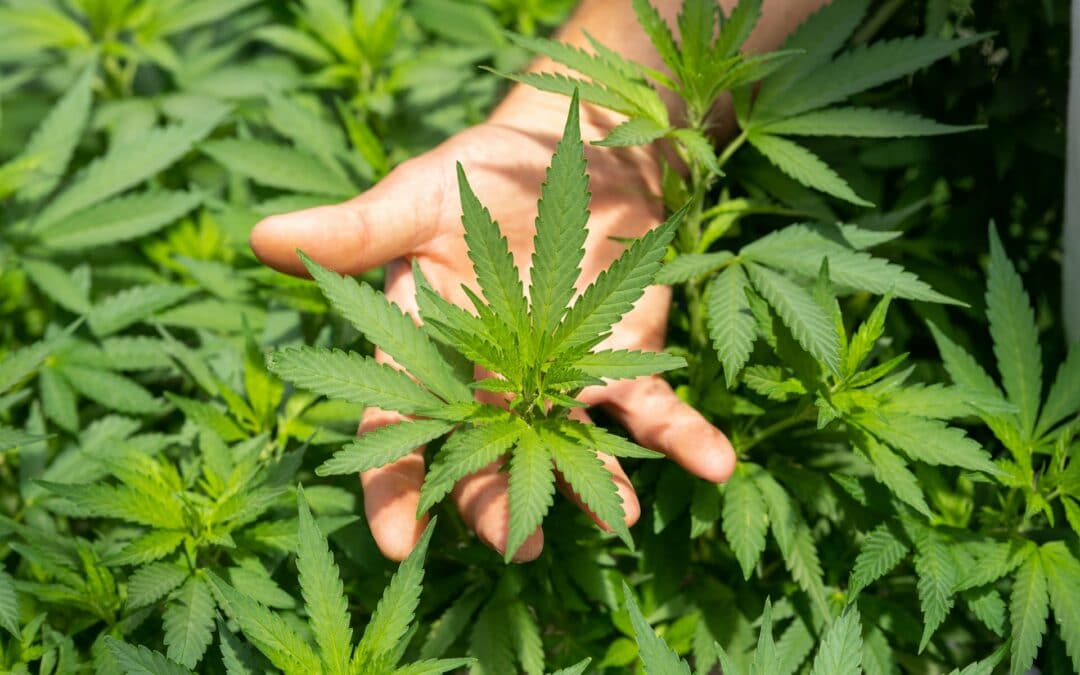
Virginia recreational cannabis could be going up in smoke

When Glen Youngkin was elected Governor of Virginia after a heated race in 2021, many cannabis advocates began to question the future of Virginia recreational cannabis. Despite legalizing cannabis for recreational use earlier in the year, the state has yet to get the industry rolling in any real way.
It isn’t uncommon for a state to take more than a year or two to establish their regulatory framework and begin adult-use sales. However in Virginia’s case, cannabis was legalized by a Democrat governor, who was soon replaced by a Republican.
Youngkin holds a different view on cannabis compared to his predecessor, and now those views have begun impacting the future prospects of a recreational cannabis industry in Virginia.
On April 7, 2021, Virginia became the first state in the South to begin the process of legalizing adult-use cannabis. HB2312 (Herring) and SB1406 (Ebbin; Lucas), introduced by Governor Northam and passed by the 2021 General Assembly, lay out a three year process to legalize cannabis and create a regulatory framework for the sale of the product.
However while a recent General Assembly session saw lawmakers increase accessibility for medical cannabis patients, it failed to expedite Virginia recreational cannabis sales, and added new penalties for cannabis possession. So what happened?
The original bill as previously mentioned included a three-year timeline to implement regulations and framework for a recreational cannabis industry. The latest General Assembly session was voting on whether to shorten this timeframe, which would have expedited retail cannabis sales to this September.
However with the latest amendments to the original bills, it is unlikely that a Virginia recreational cannabis industry will be open by the original 2024 deadline.
Lobbyists influenced Virginia legislators into believing that it is safer for several large corporations to produce the products rather than having hundreds of small batch operations, according to Happy Trees co-founder Josiah Ickes. Happy Trees is a garden store supplying cannabis growers in the state.
“We have all these small breweries in Richmond,” Ickes said. “It would be kinda like if we said: ‘Oh, well look at all these small breweries, they need to go away because we don’t know if they’re creating safe beer.’”
Virginians will still be able to possess up to two ounces of cannabis flower for personal use without penalty. For comparison, in Colorado where cannabis has been legal since 2012, consumers are only allowed one ounce in their possession at a time.
Those who aren’t waiting for a legal cannabis industry to open up also have the option to grow their own cannabis. With the current framework and delay of a recreational industry, it is likely that a gift/donation industry will begin to develop in Virginia.
Coincidentally Virginia borders Washington, D.C., where cannabis is also legal but has no established industry. DC now has a thriving gift/donation industry where consumers will donate a certain amount in exchange for a gift (in the form of cannabis), creating a loophole where technically there isn’t a “sale” of cannabis happening.
There have been plenty of efforts to shut down this grey area industry, but efforts thus far have failed. With a successful market right next door, Virginians are likely to replicate these practices so people can still buy and sell their cannabis without technically breaking the law.
One of the positives to come out of the latest General Assembly meeting was regarding medical cannabis patients and their access to the products they need. Governor Youngkin recently signed new legislation which eliminated the requirement to register with the state Board of Pharmacy before being approved to purchase medical cannabis products.
Would be Virginia medical cannabis patients already have to get a referral from a medical provider in order to get access to cannabis. The latest amendment would appear to be simply removing an unnecessary step for patients.
When lawmakers originally approved the sale of low-concentration THC oil for medical patients in 2019, the Board of Pharmacy issued just 1,377 medical cannabis cards. That number grew to 7,135 in 2020, and ballooned to over 33,000 in 2021. The Board has issued over 10,000 cards from January to April 2022 already.
Brandy, a resident of Richmond, VA began smoking cannabis at age 15. Now 37, she grows plants in her home. Citizens can grow up to four plants legally per household.
Brandy has a state-approved prescription for cannabis to treat anxiety and bipolar disorder, but said she prefers growing cannabis as opposed to going to a dispensary, because it’s cheaper. Health insurance does not cover medical cannabis.
“In Virginia, it really sucks,” Brandy said. “You go in and they have the little half gram carts, and it’s $65.”
With a retail market still not established, Brandy said she prefers growing her own supply versus buying illegally from a dealer.
“This way I know exactly what goes in it,” Brandy said. “It’s all organic product, there isn’t chemicals in it.”
Currently there are only four state-licensed medical cannabis companies that can provide cannabis to patients in five health districts across Virginia. There are still several health districts that don’t have a single dispensary, making patients have to travel long distances to get their medicine.
Limited access, expensive pricing and the lack of a legal industry has put Virginia on a path that is leaving many unsure of the future of Virginia recreational cannabis. One can safely assume that there won’t a regulated, adult-use cannabis industry in the state until at least 2024.
However one can also expect to start seeing some semblance of an underground, grey market cannabis industry develop as consumers find ways to sell and purchase recreational cannabis without breaking the specific rules of the law.






